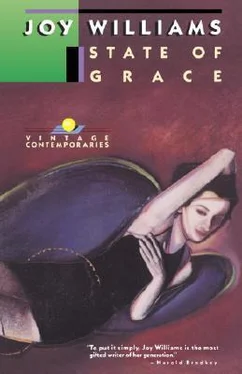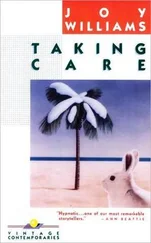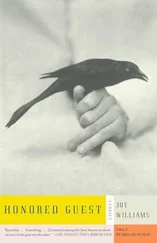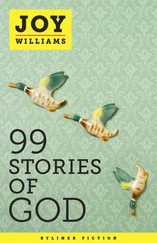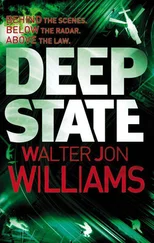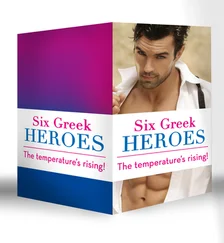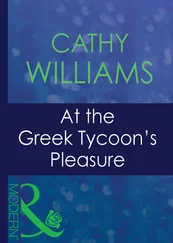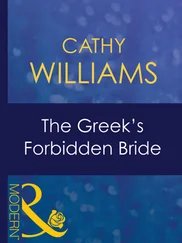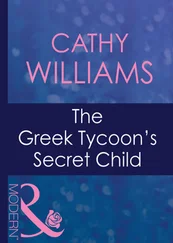For it was clearly love, make no mistake, that met my yearning Grady on the curve. The falling hatchet loves the lamb and when bones ache, they ache for the breaking. It’s love that starves and makes us murderous. And it’s Father who is in the watchtower, watching from his steeple study through the snowy nights, with his hands folded across his eyes. I was so frozen, so embalmed then … I left, a pioneer with no tools for discovery, and not the sense to know that this made all the difference, traveling from the ice and cold and his abstraction into the South, the sun and reality. I was surprised at how easy it was at first. I developed a miming manner and was accepted everywhere. But all the while, he was knowing my life before I lived it, knowing that each step I took would only bring me home again. Oh yes, it was dark and obscure Father who struck my Grady down.
Grady was taken completely by surprise … His face didn’t change, nor the muscles in his throat or arms. He is a good boy. I could see his mind beating, like a yolk dropped too soon in formaldehyde. And now I keep answering but he never asks any more. If I had told him a lie, we could have lived it better than any truth, but he had made me feel so hopeful … He wasn’t afraid of anything. He was so ambitious then, and proud and confident. He thought that life was infinite and incredible and that for every question he might have, there would be an answer and the answer would be right.
Yes, Grady thought that there were only as many answers as there were questions in the world. He believed that, in the end, everything would come out in an implacable and just balance and pairing. Some things existed and some didn’t and he told me he could tell them apart. He couldn’t imagine there were people like me who had answers to questions no one would ever ask, that there were those who lived without a life, like moths without stomachs, lived for years with their lives beyond them someplace, dangling useless on a gallows.
In love, Grady wrapped himself around me like a twining vine. He didn’t know that I had an answer for which there was no question. And that one day I’d give it to him. Yes. The very worst kind.
I cry aloud. Poor Durousseau. The tears splash on the newspaper and on my hip-hugger pants. They are of some cheap shiny fabric and there are marks all over them … a perfect paw print from the dog, quite old, coffee and candle wax and now these stains. Nothing washes out, I’ve found. I do not follow racing any more, although as a child, I had memorized the names of every Derby winner. The jockeys never interested me. In the photographs, they had the smooth faces of dwarfs, tiny waists and wardrobes. I was a child. They reminded me of evil playmates with terrible knowledge. I dismissed them and dwelt on the horses. I kept their pictures, tracing them out of magazines onto tissue paper. I knew their lineage, records and running times and could recite these statistics without error. Memorization then took the place of something else, something deep, deep, which I did not want to touch. I wanted order and it was everywhere. I memorized everything. There was nothing I could not talk about with vacuity. It was a masterpiece, my childhood.
Tragic Durousseau. Nothing unusual about it. Doom is accurate and vengeance is all the Lord’s. Picture the horse galloping since a colt toward Durousseau … The thing that waits for all of us doesn’t even bother to hide its identity or kid the survivors into thinking it was something else. In the Middle Ages, for example, I know for a fact that when dragons preferred to wear a human shape, there were certain discernible idiosyncrasies. They had wide mouths and flowing red beards and sometimes retained their horns. If you were paying the slightest bit of attention, you could avoid the dragon but this isn’t the case today. No quarter is given. Endings never come outside our experience and there’s no attempt at gamesmanship or artifice. Luck is not involved and wit or caution is useless. You catch up with it even when you’re dragging your feet.
Father is right. Treatment is of little value except to prolong the illness.
Ruttkin kneels beside me. He has missed great swatches of his face in shaving. He hands me his bottle of 7-Up, trying to be friends. I accept it and tilt the neck deep into my mouth, trying to drool in it as much as possible. I would love to give him a bad disease. Hepatitis would be nice, but I’ve never had it myself, and anyone can see that such a sickness would be outlandish for him. I’m sure he’s very clean, never puts his fingers in his mouth and drinks only beer. His distant end lies smugly on his face. In fifty years, he’ll fall asleep behind the filigreed flamingo on the door of a concrete cottage and be buried two days later. He moves at a comfy pace toward death for he knows that he has time to satisfy his needs. God will send him niggers and the discovery of unnatural acts. Each day as deputy brings its own rewards.
He says, “You don’t have to stay here any longer. I’ll take you home.” He goes into the men’s room and returns with a square of paper toweling. I hate him so much, I think I am going to be sick. It smells chloroformed. Cloaca , my dirty mind says. God only knows where Ruttkin found the toweling. Perhaps he is trying to kill me. I think of my friend, Corinthian Brown. It was only for a moment that I thought he was the black man, taken from the bus. This proves how tired I am, how wearying and confusing this continual watching and seeing and translating become. Corinthian does not travel. He has no pretty clothes. He wears shower clogs and the baggy gray khaki of the world’s inmates. All night he works and he spends the days in the gutted cars of Al Glick’s Junk Yard. He waits for beatings, I think, but no beatings come. Even the terrible Glick does not acknowledge him.
Tourists might notice him and exclaim, but the junk yard is off the highway and there would be no reason for them to be there. When I first saw him, he was sitting in the carcass of an elegant Buick convertible with a burnt-out engine. The Buick’s canvas top was down and Corinthian sat in the sun, eating an apple and reading Billy Budd . Yes. He sat in the back seat as though he were being transported somewhere, his arms bare and scruffy in the sun, still as a giant discarded doll. The heat was extraordinary, coming in waves of rubber and battery acid. The sun bounced exotically off the metal and chrome. And no one noticed. Not the terrible behemoth Glick nor Grady who was looking only for a speedometer cable nor the half-breed shepherds who patrolled the junky pasturage. No one but me noticed Corinthian, my friend.
If the deputies have ever seen Corinthian, they have relegated him to the invisible. Corinthian could never be arrested. He would accept punishment gladly but it is not his to receive. You can see how confused I am, to have thought that the drunken victim beaten here was Corinthian.
Ruttkin says, “I’ll take you home. Back to …,” he takes a piece of paper from his pocket, “… the sorority house. If you hadn’t of been walking away from the scene of the accident like you was, if you hadn’t have told me …,” he hesitates, looking for the right word, not wanting to be indiscreet, for he likes me now, he pities me and feels friendly, for I have been quiet this night, and then patient and finally crying, all the right things … “that thing, that shaggy-dog story about you not being in the wreck, about you being in another car, I never would of had to bring you here at all. It was suspicious, you know, you leaving your boy friend there and all.”
I don’t know what he’s talking about. He is going to take me home, not back to the trailer, to the mobile home that never moves, but to the sorority house. No one knows about the trailer. No one has seen it except for the hunters tramping after turkey or pigs.
Читать дальше
